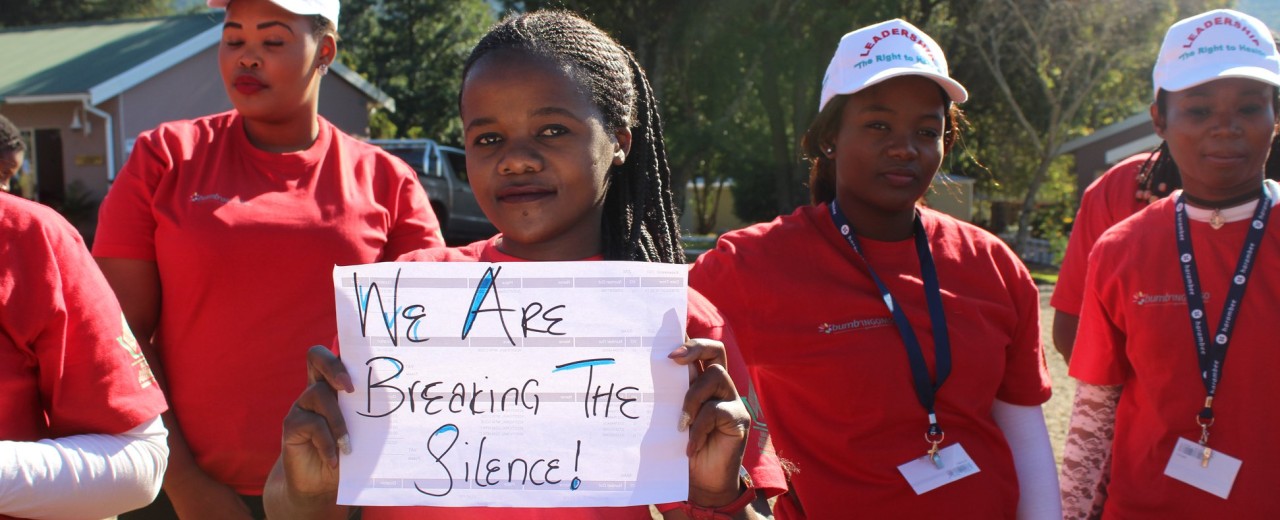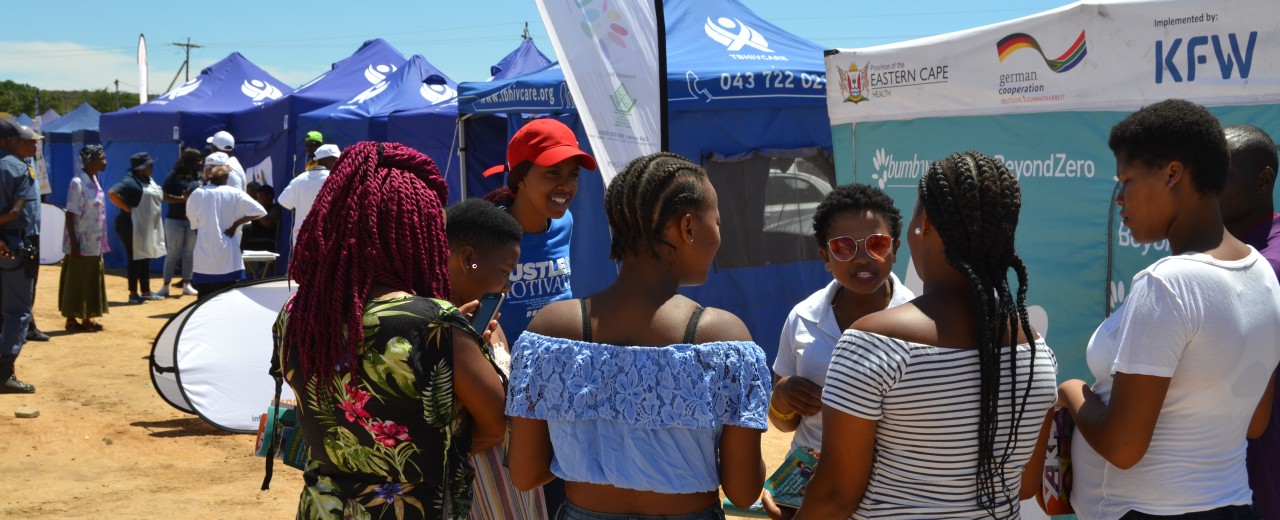
HIV and AIDS are highly prevalent in South Africa anyway, but they disproportionately affect girls and women. This is due in part to economic and sociocultural structures that put women at a disadvantage. On behalf of the German Federal Government, KfW is providing EUR 24 million to support an innovative prevention programme in the Buffalo City metropolitan area in the Eastern Cape, which uses a combination of multisectoral approaches to bolster women and give them better protection against HIV/AIDS.
The figures speak for themselves: the last HIV survey showed that women aged between 15 and 24 are almost seven times more likely to be infected with HIV than their male peers. Women in this age group account for nearly a quarter of new HIV infections. This is in addition to rapidly rising numbers of tuberculosis cases. A lack of education about these diseases is not the only factor.
The high HIV rates among young women stem from a range of causes. Women in particular have limited future prospects in the impoverished Eastern Cape region. The income of 70% of households there is not sufficient to meet basic needs. Once young people leave or finish school, there are barely any jobs available. That is why it is not uncommon for young women to try to gain an economic advantage by performing sexual services and favours for older men. Excessive consumption of alcohol and drugs and a high risk of violence leave girls and women very vulnerable to sexual violence.
However, many women and girls are no longer prepared to accept this cycle. They do not want to put up with violence and discrimination anymore and are joining forces to address the adverse conditions that surround them and take their lives into their own hands. The “Bumb’ingomso” programme supports them in this.
On behalf of the Federal Ministry for Economic Cooperation and Development (BMZ) and working in cooperation with the DG Murray Trust, KfW is promoting the “Bumb’ingomso” (isiXhosa for “shaping the future”) programme. The project’s multisectoral combination prevention approach integrates biomedical, psychosocial, economic, legal and sociocultural measures to bolster and protect girls and women.
The Bumb’ingomso network, of which more than 50,000 girls and women are now members, offers a variety of services. Through the network, girls and women work with various civil society groups and NGOs to organise events, campaigns and clubs. There are discussions about personal development and questions around lifestyle, as well as sociocultural roles, norms and identities.

Via the network, the programme organises contacts with health stations and schools in order to work with them to address health-related topics and to build up a personal and trusting relationship with healthcare staff. The programme supports and trains police officers and members of the judiciary to deal with violence against women. To offer a coordination function and act as a point of contact, the programme runs a call centre that has already logged over 65,000 interactions. Bumb’ingomso also offers careers advice, preparation for the world of work and a job centre service, helping young women to improve their career prospects. Pupils between the ages of 10 and 14 deal with gender issues as part of debating clubs in their schools, reflecting on and questioning traditional gender roles and patterns of behavior, which strengthens the self-confidence of girls in particular.
The programme has so far reached over half a million young women and girls in its various components. It contributes towards achieving SDG 5 (Gender Equality) and SDG 3 (Good Health), and indirectly towards achieving SDG 1 (No Poverty).
Share page
To share the content of this page with your network, click on one of the icons below.
Note on data protection: When you share content, your personal data is transferred to the selected network.
Data protection
Alternatively, you can also copy the short link: https://www.kfw-entwicklungsbank.de/s/enzBYJ4A
Copy link Link copied